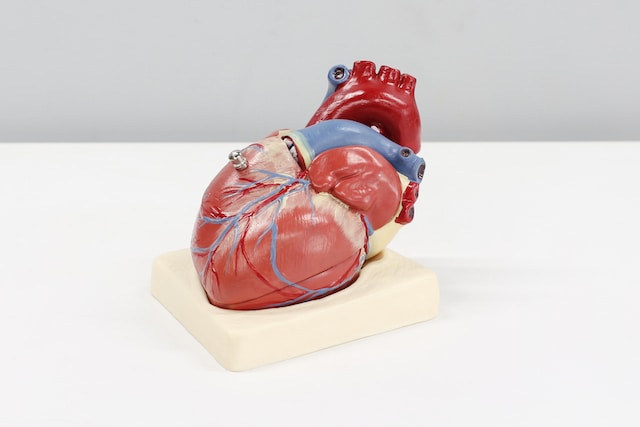Heart disease remains the leading cause of death in the United States. According to the American Heart Association (AHA), in 2020, cardiovascular disease (CVD) was responsible for 928,741 deaths in the United States. Heart disease and stroke take more lives annually than all forms of cancer and chronic lower respiratory diseases (CLRD)—lung diseases that include chronic obstructive pulmonary disease (COPD), chronic bronchitis, emphysema, and asthma—combined, and the number is rising.
Even though the leading risk factors for heart disease and stroke are clearly defined and include high blood pressure (hypertension), high low-density lipoprotein (LDL) cholesterol levels, diabetes, smoking (and second-hand exposure), poor diet, physical inactivity, and obesity, more and more patients are being reported as noncompliant.
A recent Harvard study reported that one in five patients at high risk of heart disease refused to take cholesterol-lowering medications altogether. Women, in particular, were 20 percent more likely than men to refuse therapy when first suggested and 50 percent more likely than men to never start treatment. Given the surprising results, attention is turning to answering the question of why so many patients are declining to follow through with their physician’s recommendations and whether or not alternative preferences are adequate.
A 2021 survey published in JAMA assessed the preferences of cardiovascular patients for statin therapy. The objective was to define their preferences for treatment after being informed of their risks and benefits. Their findings included a proportional increase in those willing to take statin therapy with increasing risk factors. However, with a risk greater than 10 percent, which is where guidelines recommend therapy, there was a decrease in desire to start it. Interestingly, it was suggested that informed participants were less likely to begin statin therapy.
What is a statin?
A “statin” is a class of medications that have the ability to lower elevated cholesterol levels. They are commonly prescribed when “bad” or LDL levels are high. They work by inhibiting HMG-CoA reductase which is involved in cholesterol production in the liver. The cholesterol pathway is also involved in the synthesis of dolichols or the production of Coenzyme Q10, which is important for muscle cell energy production.
Common statins include Atorvastatin (Lipitor), Simvastatin (Zocor), Rosuvastatin (Crestor), and Pravastatin (Pravachol) and vary according to potency, dosage, and potential drug interactions. The choice prescribed by a physician is individualized based cardiovascular risk profile, the desired LDL cholesterol reduction, and a variety of factors, including diet, pre-existing symptoms, comorbidities, and/or concomitant medications that may alter the statins performance.
Why do people need them?
Statins are prescribed with high LDL cholesterol levels, especially in the setting of cardiovascular disease. They are also considered in patients with medical or genetic conditions that cause high cholesterol. According to the AHA, the optimal LDL level for adults is at or below 100 mg/dL.
Statin therapy is effective in lowering LDL cholesterol, which is responsible for the build up of fatty deposits in arteries. These deposits increase the risk of cardiovascular events such as myocardial infarction or stroke.
What are the side effects?
Statin therapy is generally well-tolerated, though side effects are often reported and include muscle aches, weakness, nausea, diarrhea, and liver function abnormalities. More extreme cases can be life threatening and include hepatic- or renal toxicity, rhabdomyolysis, new-onset type 2 diabetes mellitus, or memory loss.
Even though lowering LDL levels is the main effect of taking statins, its involvement in multiple biosynthetic pathways make statins more likely to contribute to symptoms outside of the liver.
Regular monitoring with liver function testing is recommended while on statin therapy, which can be an inconvenience to some. As a part of lifestyle modification while on statins, alcohol consumption should be limited.
A possible comparable alternative
Results from a randomized trial were published in the New England Journal of Medicine (NEJM) in April 2023 and suggested another option may be available for statin-intolerant patients to reduce major cardiovascular events. These patients were at a high risk for developing CVD and were unable or unwilling to take their prescribed statin therapy. According to the study, a reduction in LDL levels using bempedoic acid reduced the risk of coronary revascularization, myocardial infarction, stroke, and death.
Bempedoic acid acts via adenosine triphosphate-citrate lyase (ACL) inhibition. This is a cytosolic enzyme upstream from HMG-CoA reductase and works to regulate gluconeogenesis and lipogenesis, inhibiting cholesterol biosynthesis. Unlike statins, bempedoic acid acts only in the liver and adverse effects from the study were gallstones and gout. It was approved by the FDA in 2020 and has already been shown to lower cholesterol in combination with statins. Aside from a higher price tag than statins, the overall benefits for lowering LDL are promising and thought to appeal to the population of patients previously unwilling to be treated medically.
The question now returns as to why patients are refusing statin therapy. Would a new option with the potential for fewer side effects be more appealing, or is there another reason patients are holding out? While the answers are being sorted, effective communication between healthcare providers and patients appears to be the key in helping individuals sort through their options.




